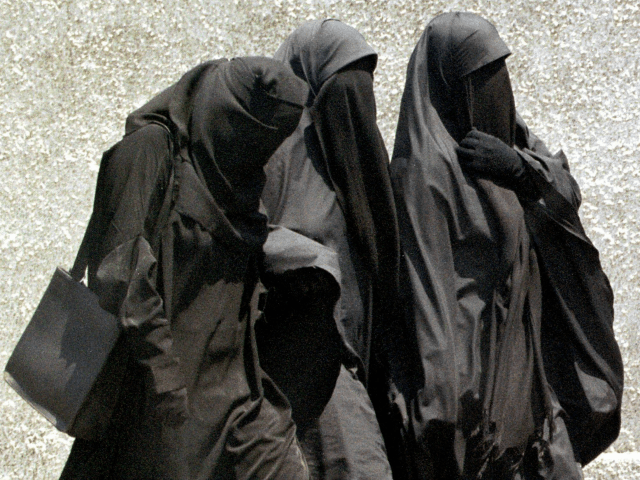Switzerland is considering introducing penalties for forcing women to wear Islamic face veils, as a referendum on a total ban on the garments nationwide looms.
The Swiss federal government does not support a national ban, saying the country’s individual cantons (federal states) should decide the issue at the regional level.
Polling indicates that some three-quarters of the Swiss public support action at the federal level, however, and the people have used the country’s system of direct democracy to initiate a binding referendum on the subject by gathering 100,000 signatures.
“Facial coverings are a symbol of radical Islam that have nothing to do with religious freedom but are rather an expression of the oppression of women,” said Anian Liebrand, who leads the pro-ban campaign.
“In Switzerland, we show our faces when we talk to each other.”
Now, the government has suggested it may make it a crime to force women to cover their faces, punishable by a fine or up to three years in prison, in a move which has been interpreted as an attempt to discourage voters from backing a full-scale ban in the referendum — although the charge could be difficult to prove in practice.
Austria, France, Denmark, and More: Europe Rejects the Islamic Burqa https://t.co/RZdi5Zsq0o
— Breitbart London (@BreitbartLondon) June 1, 2018
The Italian-speaking, predominantly Roman Catholic canton of Tessin already banned the face veil following a regional referendum back in 2013, with the restrictions backed by more than 65 percent of voters.
Many other countries and regions in Europe have also clamped down on the garments, which are associated with radical and misogynistic strains of Islam.
The Netherlands, for example, passed a partial ban on face coverings on public transport and in school buildings, government buildings, and health facilities on June 27th.
Denmark, considered the least left-wing country in Scandinavia, was the most recent to pass a more comprehensive ban, with the Danish parliament voting through a ban which will come into force in August 2018 earlier in the year.
Austria, where an anti-establishment conservative-nationalist coalition government recently took office, began enforcing a ban in October 2017, and had dished out around 50 fines as of March 2018.
Bulgaria, which has a very large Muslim community — a legacy of the Islamic invasion and occupation of much of south-eastern Europe during the Ottoman Empire’s heyday — passed a ban in 2016.
So did Latvia, which hosts only a very small Muslim community, but justified the move as a “preventive measure”.
More long-standing bans are in force in France and Belgium — both of which have become hotbeds of radical Islam in recent years.
One of the results of these restrictions has been a large movement of European-born radical Muslims into the United Kingdom under the EU’s Free Movement regime, as the country’s political establishment seems unwilling to countenance any restrictions on face veils — despite strong public support for a ban.
Strong Majority of Brits Back Burqa Ban https://t.co/GpHswMNgGc
— Breitbart London (@BreitbartLondon) May 31, 2018
It is not only European governments which have taken action against face veils, however.
A number of countries beyond Europe, some of which have Muslim majorities, have also moved to outlaw the garments, which they see as symptomatic of the spread of radical Islam.
These include Cameroon, Chad, and Gabon, which acted after a number of people were killed by niqab-clad suicide bombers in 2015, and Morocco, which banned the manufacturing, marketing, and sale of the burqa in January 2017.

COMMENTS
Please let us know if you're having issues with commenting.